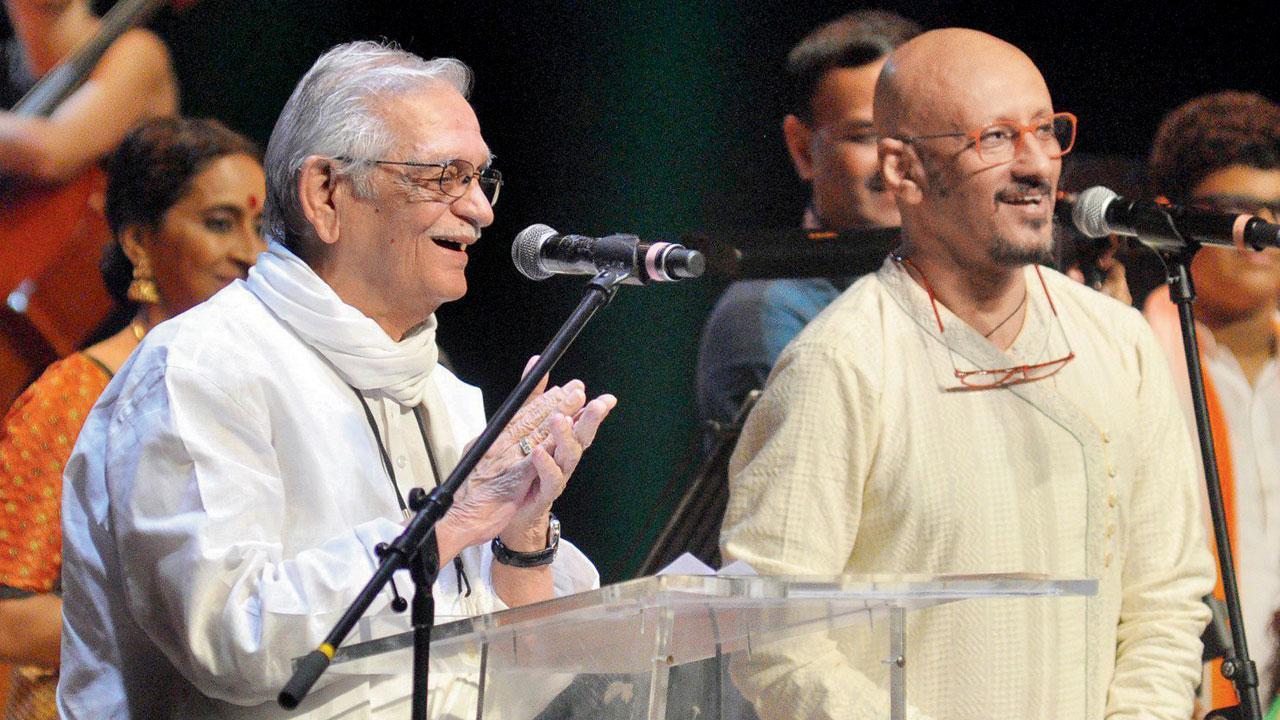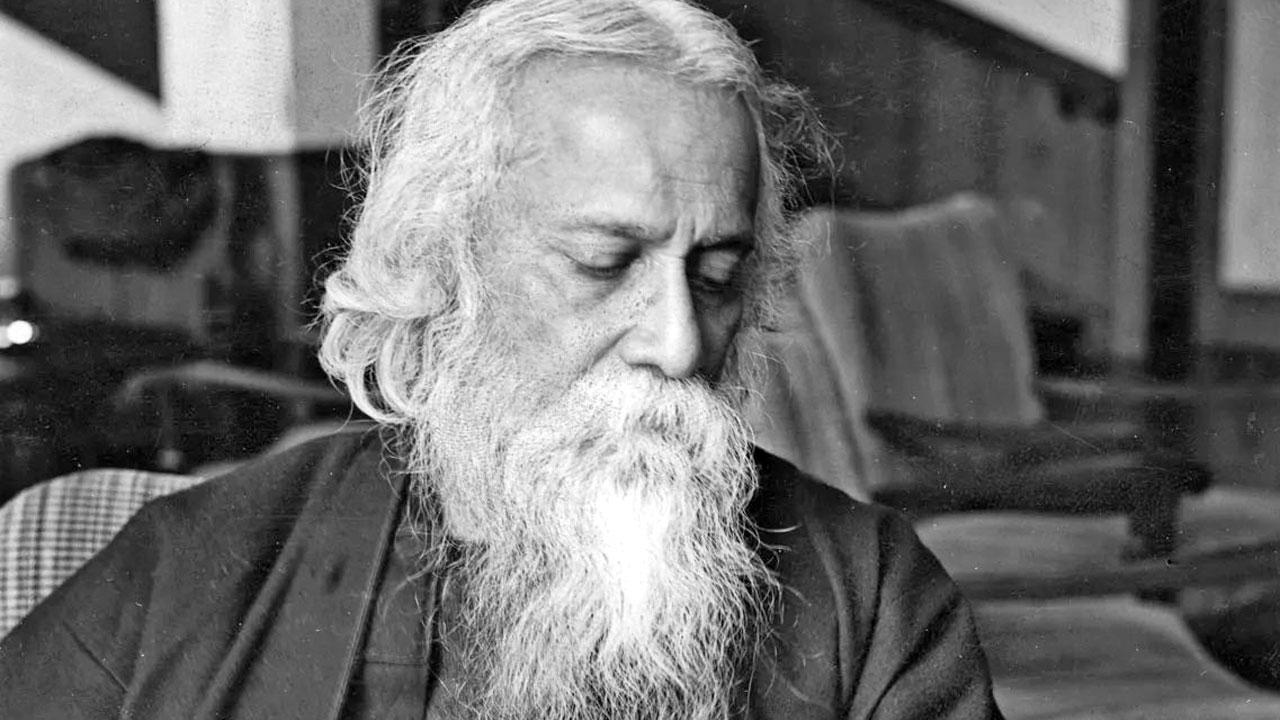Composer Shantanu Moitra and veteran lyricist Gulzar come together to present a unique exhibition of Rabindranath Tagore’s unexplored poems about childhood, innocence and beauty

Gulzar and Shantanu Moitra at an earlier event
Childhood, they say, is one of the rare joys of life. William Shakespeare called it the first age of man. Marcel Proust constantly sought to return to it. On Sunday, the duo of composer Shantanu Moitra and lyricist Gulzar will present on stage one such ancient poet — Rabindranath Tagore. They will shed light on his poems on childhood, innocence and life through their concert, Citi NCPA Aadi Anant: Tapur Tupur: Bachche, Bachpan aur Bachpana.
ADVERTISEMENT
Easier said than done. A poet, playwright and composer, Tagore’s poems and songs have entrenched themselves in Bengali culture through Rabindra Sangeet. Moitra grew up with the poet in more ways than one, yet he says, “It starts with Gulzar’s love for Tagore. For me, it was a genetic acquisition. For him, his love for reading stems from Tagore.” It was a translated edition of The Gardener and Gora that famously sparked the lyricist’s thirst for literature as a child. Over the last two decades, the veteran has dedicated hours to translate the bard’s poems from Bengali to Hindi.

Rabindranath Tagore. File Pic
“In the course of life, when I started appreciating Bangla in the company of Bengali friends — and there is nary a Bengali who hasn’t read Tagore — I realised that the Urdu translation that introduced me to Tagore, and the many I came across later were not good enough. Thus, began the quest for better translations,” he explains. This was not easy. “To translate into Hindi and Urdu, I had to evaluate my own linguistic prowess and determine if my Hindustani had the strength to be worthy of Tagore. To arrive at the hope that this may turn out to be all right took a good 80 years,” says the poet.
Yet, how do you compose for Tagore, a famed composer himself? “We looked for poems that had not been set to music by Tagore,” Moitra reveals. The composer shares that the veteran was diligent and would often pick poems whose ideas compelled your imagination, irrespective of their popularity. They were all built around Tagore’s ideas of childhood. “Tagore wrote these poems for children as an adult. Through these, he would address things he struggled with as a child,” Moitra points out. The poems speak about a rainy Santiniketan to a child trying to teach a cat that reflects Tagore’s own home schooling, and the unique portrait of life in the Thakurbari.
They also provide insight into the life of a young Rabindranath, says Moitra. “Gulzar would often tell me that in a house crowded with people, Tagore was lonely. Quite like the children in our world today, despite being surrounded by devices and games. It is his effort to remind us to cherish our children,” the composer says.
Gulzar and Moitra then worked in tandem to chisel them into tune. The key, Moitra says, was to find the right expression that would suit a Tagore poem. The music also came with its own demands. Moitra knew that he could not stray too far from Tagore’s musical grammar. “Tagore has an interesting way of repeating the second half of a line in the composition. The next line would follow the rhythm,” he says.
Then, there was the sanchari, a unique signature of the Nobel Laureate’s compositions that form a delicate bridge between the mukhda (start of the song) and antara (body of the song). “A sanchari is the neck, with its lower notes leading up to the antara. I used it to stay true to the grammar of his
music,” Moitra shares.
On Sunday, they will take stage with an array of voices such as singers Shaan, Mahalaxmi Iyer and Rekha Bhardwaj. Moitra shares, “Their voices reflect the characters and themes in the poems. From the quirky playfulness of Shaan and the loving warmth of Mahalaxmi Iyer, to the deep wisdom and gentleness in Rekha Bhardwaj’s voice.” Binding them all together will be, quite appropriately, the voice of poet Gulzar. After all, as the composer concludes, the concert is a journey through Tagore’s imagination. There is none better to bring it together than another poet.
On: January 7; 6.30 pm
At: Jamshed Bhabha Theatre, NCPA, Nariman Point.
Log on to: ncpamumbai.com
Cost: Rs 720 onwards (members); Rs 800 onwards (non-members)
 Subscribe today by clicking the link and stay updated with the latest news!" Click here!
Subscribe today by clicking the link and stay updated with the latest news!" Click here!







